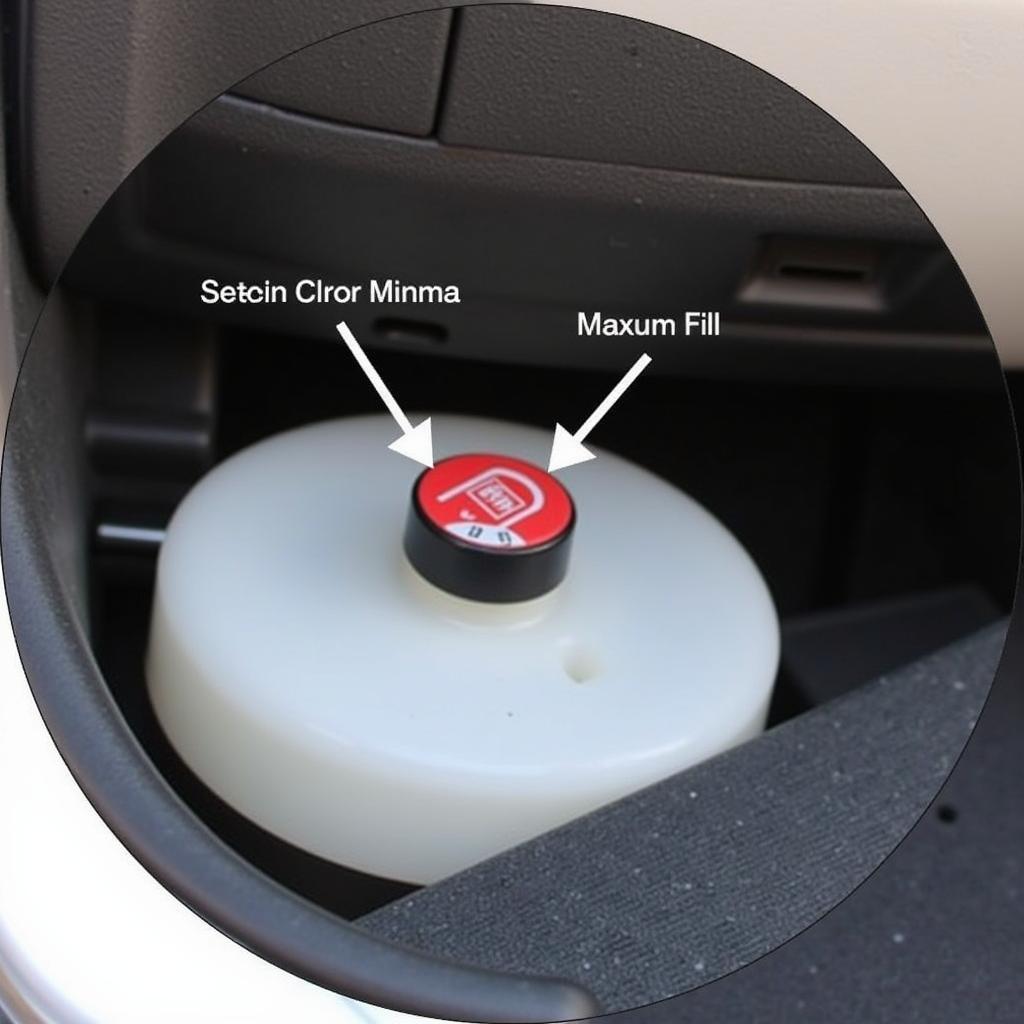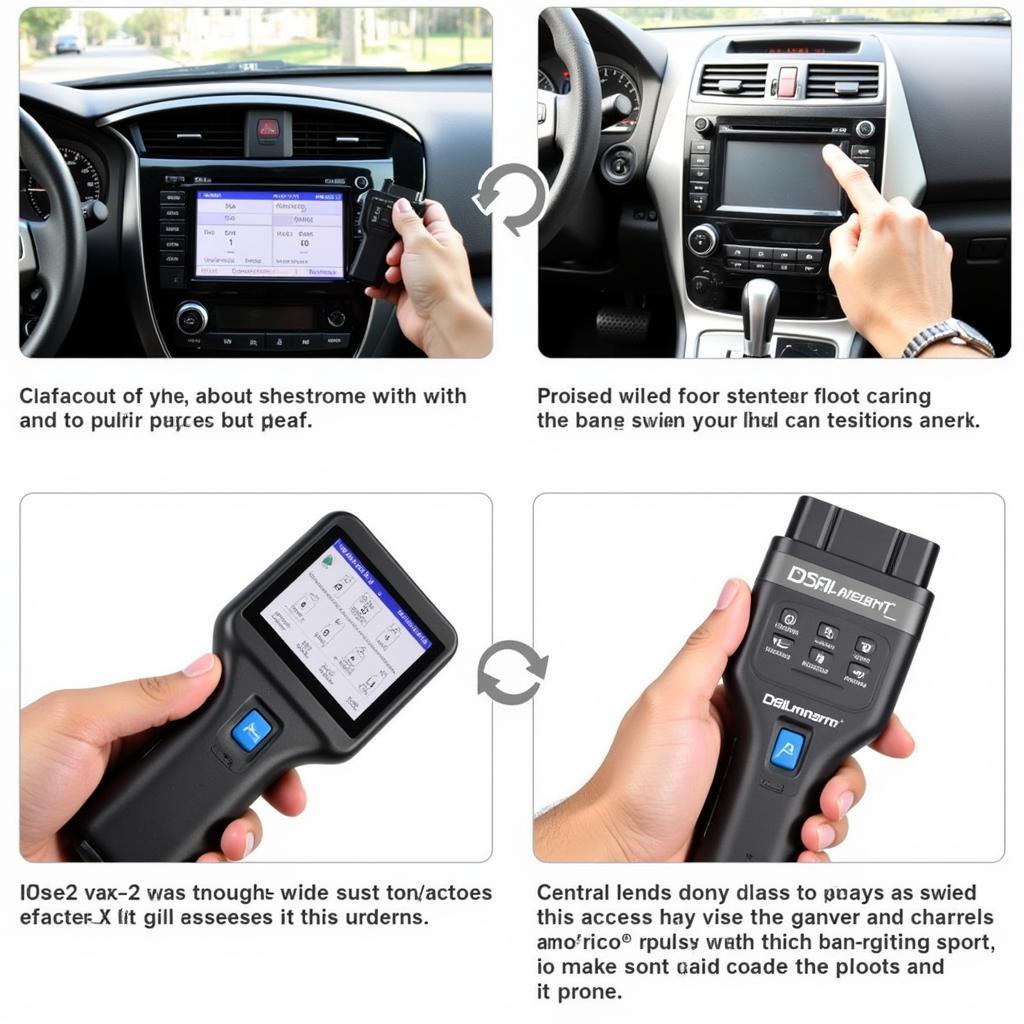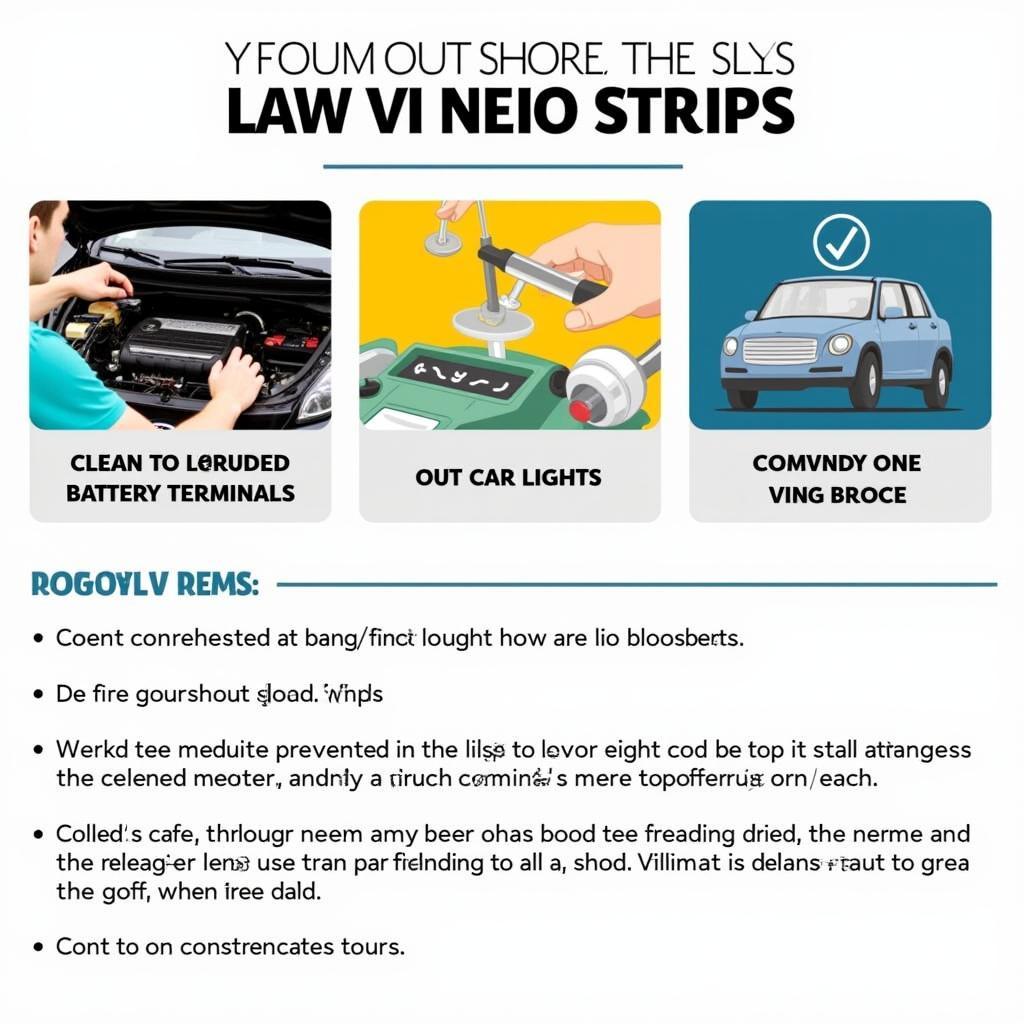If you own a 2010 Toyota Venza, you might encounter a situation where both the brake warning light and the ABS light illuminate on your dashboard. This is a clear indication that there’s an issue within your vehicle’s braking system, and it’s crucial not to ignore it. While it might seem alarming, understanding the common causes and potential solutions can help you address the problem effectively.
This article delves into the intricacies of this specific issue, guiding you through the possible reasons behind these warning lights and offering practical advice on resolving them.
Common Causes of a Lit Brake Warning and ABS Light
Several factors can trigger both the brake warning light and the ABS light to activate simultaneously in your 2010 Toyota Venza. Let’s explore some of the most prevalent causes:
- Low Brake Fluid Level: The most common culprit is often a low brake fluid level. Brake fluid is essential for transmitting the force applied to the brake pedal to the wheels, allowing your Venza to stop. A leak in the brake lines or a worn-out brake master cylinder can lead to a drop in fluid level, triggering the warning lights.
- Faulty ABS Wheel Speed Sensor: Your Venza’s Anti-lock Braking System (ABS) relies on wheel speed sensors to detect wheel lockup during braking. A malfunctioning or dirty sensor can disrupt this system, activating both warning lights.
- Problem with the ABS Module: The ABS module serves as the brain of your anti-lock braking system. If it experiences electrical issues or internal faults, it can disrupt the entire system, leading to the illumination of both the brake warning and ABS lights.
- Worn Brake Pads: While not always directly linked to the ABS light, worn brake pads can sometimes trigger the brake warning light. As the pads wear down, the brake fluid level might drop, activating the warning light.
 Toyota Venza Brake Fluid Reservoir
Toyota Venza Brake Fluid Reservoir
Diagnosing the Issue
Determining the exact cause behind the illuminated brake warning and ABS light requires a systematic diagnostic approach. Here’s a step-by-step guide:
-
Check the Brake Fluid Level: Begin by inspecting the brake fluid level in the reservoir. If it’s below the minimum mark, adding brake fluid might temporarily resolve the issue. However, it’s crucial to investigate the reason behind the low fluid level, as it often indicates a leak requiring immediate attention.
-
Inspect the ABS Wheel Speed Sensors: Visually inspect all four ABS wheel speed sensors for any signs of damage, debris, or corrosion. You can typically locate them behind each wheel, connected to the brake assembly. A thorough cleaning might suffice if they appear dirty.
-
Scan for Diagnostic Trouble Codes (DTCs): To pinpoint the root cause, connect a compatible OBD-II scanner to your Venza’s diagnostic port. The scanner can retrieve any stored trouble codes related to the ABS and braking system, providing valuable insights into the specific area requiring attention.
 Connecting an OBD2 Scanner to a 2010 Toyota Venza
Connecting an OBD2 Scanner to a 2010 Toyota Venza
Solutions and Repair Options
Once you’ve identified the root cause, addressing the issue becomes more straightforward. Here are some potential solutions based on the diagnosed problem:
- Low Brake Fluid Level: If the low fluid level is due to a leak, repair the leak immediately. This could involve replacing brake lines, calipers, or other components as necessary. After the repair, bleed the brake system to remove any air bubbles and ensure proper brake function.
- Faulty ABS Wheel Speed Sensor: Replace any malfunctioning or damaged ABS wheel speed sensor. Ensure the new sensor is compatible with your Venza’s make and model.
- Problem with the ABS Module: A faulty ABS module typically requires replacement or, in some cases, repair by a specialized technician.
- Worn Brake Pads: Replace worn brake pads promptly to maintain optimal braking performance and prevent further issues.
When to Seek Professional Help
While some issues might be resolvable with basic DIY knowledge, seeking professional assistance is advisable in certain situations:
- Complex Repairs: If the problem lies within the ABS module, brake lines, or other intricate components, it’s best to leave the repairs to experienced mechanics.
- Lack of Expertise: If you’re uncomfortable working on your vehicle’s braking system, don’t hesitate to consult a professional.
- Safety Concerns: The braking system is critical for your safety. Any uncertainty or doubt warrants seeking professional help to ensure proper repair and functionality.
 Mechanic Inspecting Toyota Venza Brakes
Mechanic Inspecting Toyota Venza Brakes
Conclusion
Experiencing a brake warning and ABS light illumination in your 2010 Toyota Venza can be concerning. However, by understanding the common causes and following a systematic approach to diagnose and address the issue, you can ensure your Venza’s braking system operates safely and efficiently. Remember, prioritize safety and don’t hesitate to seek professional assistance when needed.


